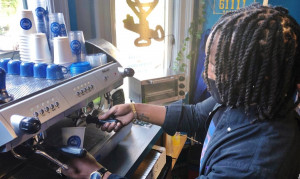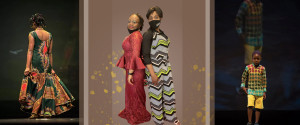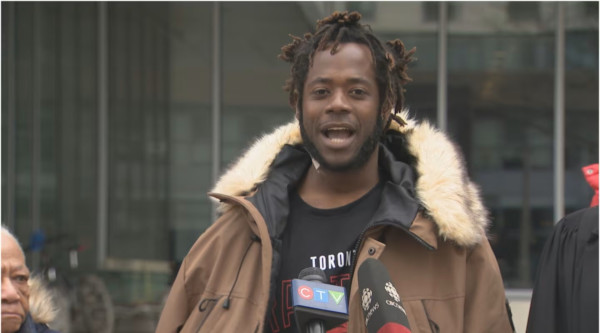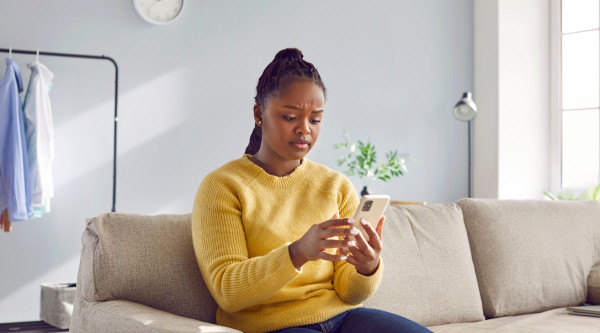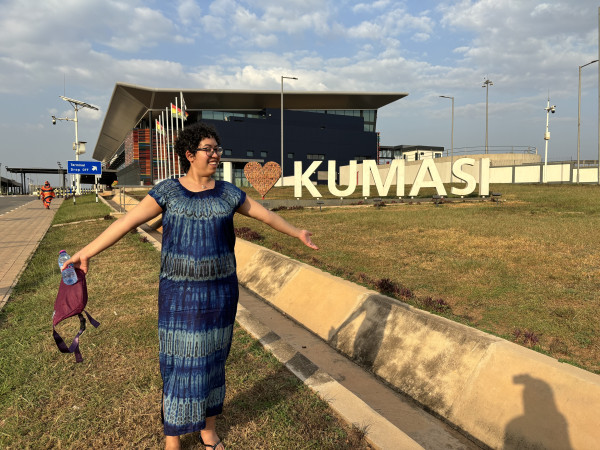Several studies have shown that entrepreneurs experience high rates of stress and mental health issues like depression, anxiety and substance abuse. According to Fortune magazine, 30 per cent of start-ups fail due to “founder’s blues". A 2019 Canadian Mental Health Association (CMHA) found that 62 per cent of entrepreneurs reported feeling depressed at least once per week whereas only 8 per cent of Canadians perceive their mental health as poor or fair.
And like we’ve seen time and time again over the last 20-odd months, the COVID-19 pandemic has made the situation worse. Businesses and individuals suffered huge financial losses, physical distancing led to many people feeling disconnected from their usual communities, and exacerbated mental health issues. Ryan Knight realized this and knew he and his organization could propose a solution.
Ryan Knight is the co-executive director of the Afro Caribbean Business Network (ACBN). The ACBN is an organization that offers Black business owners and entrepreneurs networking, education and coaching opportunities to help them take their businesses to the next level.
In 2021, the ACBN launched a virtual reality (VR) environment called Ubuntu, that allows for community engagement, one-to-one meditation and therapeutic counselling via the Cogni XR platform. The app was developed in collaboration with Cognicorp+ Therapy Inc. Ubuntu’s immersive VR platform was designed specifically for BIPOC community members who don’t have a technical background. One of the app's other objectives is to make accessing mental health support and VR technology more accessible to marginalized communities.
Ubuntu is a Nguni Bantu term meaning "humanity”, sometimes translated as "I am because we are", or "humanity towards others.” In Xhosa, Ubuntu is also used to describe "the belief in a universal bond of sharing that connects all humanity.” I spoke to Knight about the VR app in November.
Can you take me through the process of the Ubuntu app from it being an idea to the launch you had in October 2021?
It was amazing. When we brought on our co-executive director, Nicola Harris, she would tell us about the different people that she's connected with and we brainstormed about different grants that we were applying for to see what would be possible. She mentioned Emanuella Michel in Quebec and the VR platforms she’s working on. We decided that if we found a grant for building a VR world, we'd go for it. And then so said, so done, we found one.
It wasn't something that I had conceptually ever thought that ACBN would be able to partake in as a builder. I thought ‘yes, possibly in the future’ that we’d be able to buy a VR headset and be on somebody else's platform.’ But us being able to build it from scratch was pretty amazing, and it wouldn't have happened without those connections.
What does Ubuntu mean and why did you choose it as the name?
I know there are one or two variations of it but Ubuntu means “I am because we are.” We really wanted to hone in on that “If anybody in our community is suffering from mental illness—or as I like to say, their mental strength is not there—it’s a reflection on all of us. Everything that's happening individually is affecting the collective. So, we were able to build a space where you can be seen as part of a community, and that it isn't just you on your own. I often talk about working in silos with a lot of organizations and I feel like the more we're able to collaborate, the more I feel like it amplifies what everybody's doing. The more we realize that the only way we exist is with each other, I feel like Ubuntu is the one word that just captures that essence.
How does the app fit with the ACBN’s overall mission?
Our mission is to be leaders in uniting and educating entrepreneurs of African and Caribbean heritage. The uniting piece is where I feel Ubuntu and this app on the virtual platform fits in well because a lot of times entrepreneurs dismiss our mental health. We’re very good at hiding it and at working through it and putting on a brave face. You might want to leave or not talk to anyone but you get it done.
So, if we’re not dealing with the challenges that we have, when we're uniting, we don't only want to unite with a fake facade on. We want to be able to unite where we can just talk about what's going on or even just get away from the grind. We want to be able to offer a space where it's not only about optimization, shooting for the moon and making your business as best as possible. You also need time to decompress in order to do those things. When we see entrepreneurs burning out, it's because we've been neglecting what has actually been ailing them. I feel like we hadn't thought of that side of it with ACBN when we were first starting. It was all about ‘how do we help entrepreneurs grow their businesses as best they can?’ But that includes the mental health piece so it was a welcomed addition but it wasn't in the initial design.
How or did your personal experiences influence the different kinds of components that went into the app?
When I think about it, it was realizing my own journey with ignoring my mental health, then having episodes where my wife especially noticed I wasn’t myself and asked if I was depressed, then really having to confront it. This is a space for people… I don't want to say we have to be dragged to but we have to be able to start the conversation somehow.
Another element is the cool factor, where it is something new so some people will say let me see what this is all about. Then they try it and they realize ‘whoa, maybe I do need to start talking about my mental health and this is an avenue to do it.’ Sometimes we'll be home and we realize we need to talk to somebody but then there's no one that you really want to talk to. So, we’re offering that option.
Those are the types of elements that are like my own journey; knowing that I didn't really want to talk about it but when I did get to talk about it, it was very refreshing. When it comes to the design, a lot of credit has to go to Emanuela and her team for being able to completely build an entire universe that is just a place to explore and say and there are no expectations. It's not somewhere you have to deliver a presentation or hit your numbers. It's just exploring and listening and talking and then going about your day.
What did you hear from people who attended the launch event or who have used the app?
I feel like a majority of the feedback right now is on the cool factor side of things. Some people didn’t know you could build something like this. I also think that some people like being part of the genesis of it and are really gravitating towards that.
Right now, trainers are the main people that are on there. Counselors that would be able to use the platform can invite their clients there. So, the client side of it, I don't think we've hit just yet. It's more so trainers seeing how the platform could be used and what can be built, like additional worlds on top of what’s there that are focused on specific areas. People are just letting their creativity flow.
Why is it important for Black and other racialized communities to have an app like Ubuntu to help build mental strength and community?
It’s really about the options. When we realize that we need to do things, for example, if we need to get a bank loan, we know where to go to get it. If we need to hire a marketer, we know where to get it. But when a person says, ‘You know what, you seem off, maybe you should talk to somebody or take some time off or decompress. Really, the options are limited, unless you're going to sign up for yoga or meditation or a silent retreat. So, what’s in between doing nothing and going all out and changing your lifestyle? This is where I feel like the VR world could be that option in the middle.
A lot of times, even going to a therapist in-person is a big deal; that’s like going on a retreat for Black people. I remember going in-person to talk to somebody, and it was helpful but as an entrepreneur, I was asking myself ‘do I have time for this, is it covered, how much is it going to cost? So, that’s where us almost bringing the therapist into a person's home through the VR channel gives them that option to say, ‘I don't want to book an appointment and go anywhere, but I can still talk to somebody and not have it feel like I'm just in a Zoom meeting. It’s said that the difference between being in the VR world and being on Zoom is exponentially better.
In your opinion, why are the barriers that Black and racialized communities tend to face so difficult to overcome when it comes to accessing mental health support?
It’s a catch 22. Because we've been through trauma — even if it's not direct — and then you have to deal with the trauma. But then because of the trauma, you don't want to or don’t trust going to talk to people about it. Now, you have to get over that trust issue. And who do you go to, to get over the trust issues, it’s the thing you don’t trust. It’s a vicious circle.
If you’re realizing that you need help but the thing that's supposed to help you, you don't really trust, and before, there were support options but only from outside your community. Some people say, ‘why am I going to go to the oppressor for them to tell me about my trauma? I’ll just skip that.’ Now more of us in the community that have had trauma have dealt with it, they are helping the next ones with their trauma. That's when it becomes more inviting to go talk to someone.
The initial counselors I talked to weren’t from the Black community, so I was hesitant to talk about certain things because then it turns into a session about you explaining not why the thing bothers you but explaining why it's a thing in general. Like when you’re talking about microaggressions or trying to get them to understand how some word is linked to something else. But when you say certain things to somebody in your community, they just get it and then you go on.
I know what you mean. It’s like you don’t have to code-switch and it’s easier to drop your defences because you’re less concerned with what you’re saying, how you’re saying it, and who you’re saying it to. Moving on, in the press release, it says, “The Ubuntu platform was designed specifically for BIPOC people who don’t have a technical background,” why was that an important decision to make?
The user experience is going to be pretty much the be-all and end-all. If it's causing people stress just to get on the platform, the uptake and people using it is going to drop off. So, how do we make it so it’s an option that isn’t too much work, like the decision to leave your house and go see a therapist. That’s always how we’re looking at it. So when we're doing beta testing, we say, “what is the smoothest path or process for somebody that has never experienced the VR world before, to get them set up? We have to make it as smooth as possible.
In the press release, you also said, “the utilization of VR as a community engagement tool will have a far-reaching impact not only at a micro level but more importantly on our society as a whole.” Can you explain what you mean by that and how do you think VR will be able to do those things?
Something interesting about VR is the ability to build worlds. If you talk to me long enough, you’ll start hearing snippets of nation-building and building a nation within a nation and finding areas even in Canada that we can carve out and create a sovereign state. When you look at VR now, we can test all these things and build in a world where it doesn't matter where you live physically, you can now be part of this nation within a nation.
That’s what gets my creative juices going and makes me think, “What can we accomplish in the VR world that we can then take to the real world?” With people from all over the globe able to log in and collaborate in this VR world, that'll show us that it’s possible, so we can take that now to the physical world and say, “Listen, this is what it would look like if we collaborated just like we're doing in the VR space.” Hopefully, it'll spark some other creative brainstorming with people because it’s literally a blank canvas, where you can build anything that you can think of and you don't have any limitations.
That is really cool but what is your elevator pitch? If you were talking to someone who is hesitant or maybe has never done therapy or never heard anything about VR, how would you pitch the app to them to convince them that it would be something worth doing?
That's an interesting question because the way I’d pitch it to myself, I'd say, “Do you disagree that entrepreneurs need to unplug? The space that we’re building gives you an option to unplug because we know it can be difficult to plan for that and make time because we’re so busy. So, check it out. This is a space you can tap into where you can decompress from anything that's bothering you.
I had to brainstorm that a little bit and it's a good exercise because you know in your heart that people need to decompress but you might not know why. We want to find out why people would want to take a break because it’s universal. But to me, this gives you the option to take a break and then also an option for you to talk about what you’re going through. You’re not obligated to talk to anybody but the option’s there, so it’s about giving more people more options.
You can contact Michelle Clarke at This email address is being protected from spambots. You need JavaScript enabled to view it. for more information.
Disclosure: I worked on the ACBN’s marketing strategy in 2019. And my mother, Nakimbe Baobab, became a board member in 2021.
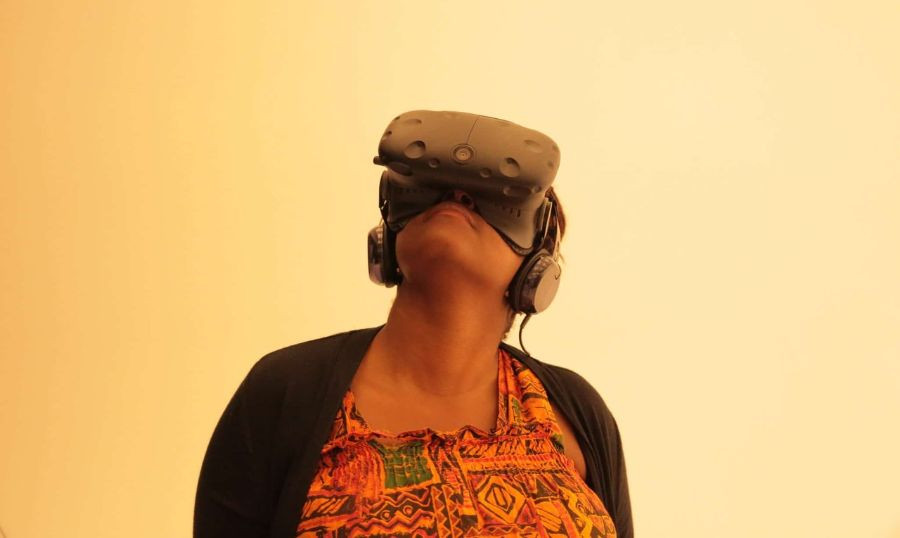
 By
By 




